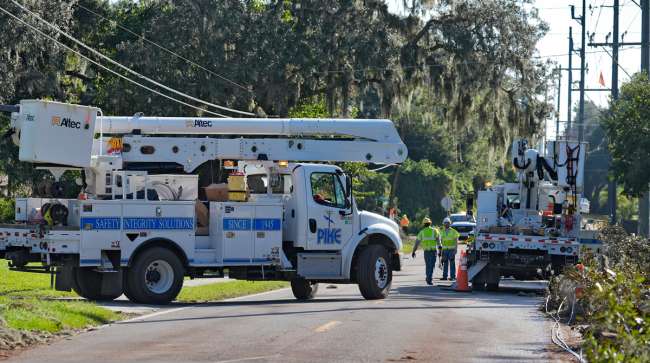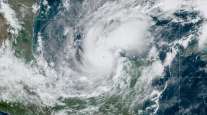Staff Reporter
States Temporarily Lift Fuel Tax Rules for Hurricane Relief

[Stay on top of transportation news: Get TTNews in your inbox.]
Illinois, Maryland, Alabama, Tennessee and North Carolina have temporarily waived International Fuel Tax Agreement registration requirements to facilitate aid delivery to Southern states recovering from hurricanes Milton and Helene.
Illinois Gov. J.B. Pritzker announced that from Oct. 11 to Nov. 9, the state will suspend IFTA requirements and motor fuel use tax (MFUT) single-trip permitting for qualified vehicles participating in interstate hurricane disaster relief efforts.
“Here in Illinois, we understand the devastating effects of climate change, and we’re here to support ongoing relief efforts in any way we can,” Pritzker said. “That’s why my administration is suspending IFTA/MFUT requirements for vehicles providing aid to those affected by Hurricane Helene and Hurricane Milton. This temporary suspension will expedite the delivery of crucial resources to families in need.”
The Illinois Department of Revenue directive states that qualified vehicle operators traveling through the state to assist with restoration efforts in declared emergency areas will not face penalties for IFTA/MFUT non-registration if they provide adequate proof of their emergency destination or last stop within the designated area.
McLeod Software CEO Tom McLeod explores the potential for artificial intelligence to boost efficiency and build resilience. Tune in above or by going to RoadSigns.ttnews.com.
Illinois also waived IFTA-required credentials and MFUT single-trip permits for qualified motor vehicles delivering goods, services or foods necessary for sustaining life and livestock in the area covered in the declaration.
“Motor carriers taking advantage of this waiver must properly register for IFTA or obtain single-trip permits for continued travel into or through Illinois,” the order says. Approved emergency areas are those designated by President Joe Biden or a state governor of an IFTA jurisdiction.
In Maryland, Comptroller Brooke Lierman authorized a temporary waiver Oct. 10 of some IFTA requirements for motor carriers traveling through the state to provide Hurricane Milton disaster relief. The waiver, effective through 11:59 p.m. on Nov. 10, applies to IFTA licensing and decal requirements for motor carriers transporting essential emergency relief supplies and personnel, such as for the restoration of utility services in Florida.
Alabama Department of Revenue Commissioner Vernon Barnett announced in late September a 30-day suspension of International Registration Plan and IFTA requirements through Oct. 27 for vehicles providing interstate disaster assistance. Tennessee’s Department of Revenue implemented similar measures, waiving IRP and IFTA requirements through Oct. 30 for vehicles involved in interstate hurricane relief efforts or traveling through Tennessee to assist other states.
Want more news? Listen to today's daily briefing above or go here for more info
North Carolina Gov. Roy Cooper issued exemptions Sept. 25 from state filing requirements for quarterly fuel tax returns and allowed nonparticipants in the state’s IRP and IFTA to travel through the state.
Meanwhile, Florida is taking steps to address the aftermath of the hurricanes. The Florida Department of Transportation has lifted weight restrictions and is allowing emergency response vehicles, including utility vehicles, to bypass weigh stations.
The state is also taking action to combat fuel shortages. The Florida Highway Patrol is escorting fuel trucks to critically low areas and providing security at fueling locations, including Tampa-area public fuel sites in Bradenton, St. Petersburg and Plant City. State police are managing traffic at the Port of Tampa Bay to ensure fuel trucks face no delays en route to their destinations.





